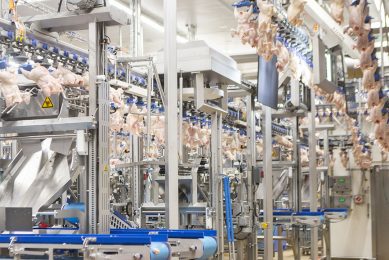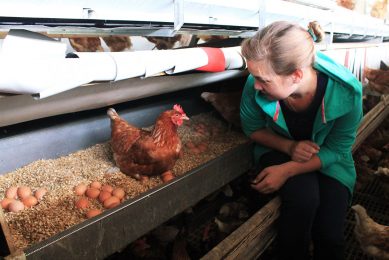Antitrust authority in Brazil approves Perdigao-Sadia merger
Brazilian antitrust regulator Cade on Wednesday approved the merger of the country’s biggest food processors to create BRF Brasil Foods SA after imposing restrictions on the deal.
In a decision by the regulatory agency, BRF will have to get rid of or suspend about 12% of production capacity in order to create a rival that can effectively compete with the company.
But the market received the news well, with shares jumping. Analysts are saying that the company’s growth prospects won’t be significantly hurt by the restrictions.
“The solution was a good one and accomodated our needs as well as answering to the concerns of the antitrust agency,” BRF Chief Executive Jose Antonio do Prado Fay said. “The agreement shows the maturity of the process and that Brazil can handle such a large and complex merger such as ours, which is going to be common going forward.”
The current agreement came about after the regulator signaled in June it would block the merger, despite assured statements by the company that such a merger would create a “national champion” that could compete globally. The restrictions however, showed that the regulator was more interested in maintaining domestic competition than extending the reach of Brazilian companies.
The criticism that government regulators were promoting Brazilian conglomerates over domestic consumers cropped up again during merger talks between retailer Cia Brasileira de Distribuicao and France’s Carrefour, and was one of the apparent reasons that led government development bank BNDES to back out of the deal.
BRF, created in 2009 by the partial merger of Sadia SA and Perdigao SA, controls more than half of the market for most processed foods, and upwards of 80% in the case of some food items. As part of the deal, the company will sell several processing factories, slaughterhouses and poultry farms, as well as eight distribution centers and 12 minor food brands. The company will also have to suspend sales under the Perdigao brand for up to five years, in the case of frozen food items like pizzas and lasagnas, and three years for some processed pork products.
BRF’s assets will preferably be sold to a single buyer, Cade said, in order to create a strong competitor for BRF with an integrated and national network. The company is prohibited from selling the restricted Perdigao products under new brands, and can’t buy back the productive assets during the next 10 years.
The suspension of the brands will begin as soon as the BRF finds a buyer for them, the company said. CEO Fay said that he has no preference for a buyer other than “whomever pays the most,” even if the prospective buyer is a strong rival. The sale won’t happen this year, but could be completed by the end of 2012, Fay said.
The sale of assets and the suspension of certain brands will affect about 12% of sales volume and about 13% of net revenue, BRF said. The three-to-five-year restrictions on Perdigao will affect about one-third of the brand’s sales.
The sold-off assets brought in about BRL1.7 billion in revenue, and the suspended brands about BRL1.2 billion, but Fay said he expects to be able to make up for that lost revenue by the end of next year. The merger approval also allows the company to fully capture synergies, since the businesses no longer have to remain separate, Fay said. He expects savings to reach BRL500 million already next year.
“The suspension of the Perdigao brands was the only credible option since there was no way that we could transfer the brand” to another company, Cade board member Ricardo Ruiz said. BRF is processing 730,000 tons of food products annually. “Whomever is interested in buying will have to pay a fair price as these are good assets,” he added.
In order to ensure adequate competition levels in terms of sales, BRF has to maintain, until the sale is complete, current levels of employment, marketing investment, and market share, according to Cade.
Related website: BRF
Source: Fox Business













